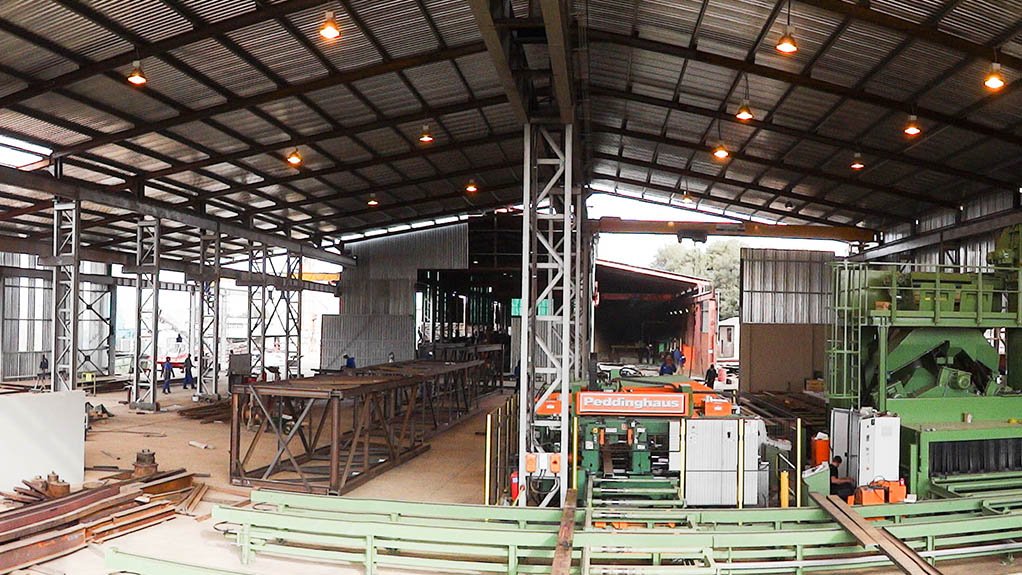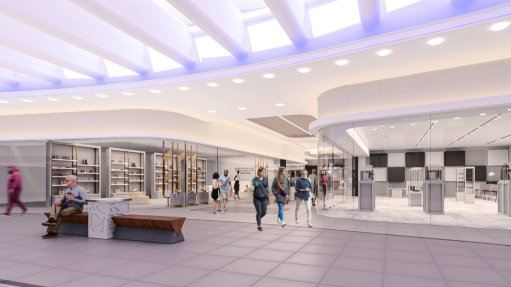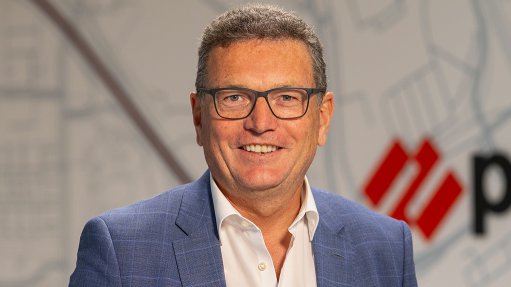Future order book to relieve pressure for fabricator


Betterect MD Nicolette Skjoldhammer discusses the company’s strategic decisions, facility upgrades and the concept of ‘Team Africa’. Camerawork: Nicholas Boyd. Editing: Nicholas Boyd. Recorded: 12.06.2020
BIG PLANS Betterect has expanded its facilities by adding another 2 000 m2 of under-roof factory space, as well as new machinery
Although the strategic decision to continue to pay employees full salaries during the Level 5 lockdown in April put pressure on its cashflow, steel fabricator and erector Betterect believes a healthy order book of projects for the next 18 months should ensure that the pressure will be relieved.
Betterect management decided to pay employees full salaries because the company has what Betterect MD Nicolette Skjoldhammer believes to be some of the best artisans in Southern Africa.
“We knew that, to remain competitive once the lockdown ended, we would be heavily reliant on the experience and expertise of our workforce. Therefore, we needed to ensure that we supported them and their families throughout this difficult time by paying them their full salaries throughout the lockdown.”
Skjoldhammer says the company has several long-standing client relationships, which stands it in good stead, as the company’s strategy has always been to develop partnerships with clients in the early stages of engagement.
While some projects in the pipeline might be delayed slightly, as a result of Covid-19, she is confident that most will continue to go ahead as planned.
Betterect is well-positioned geographically, with a good complement of experienced artisans and an experienced fabrication and project management team. These factors enable the company to serve the pan-African market in terms of specialist fabrication and turnkey site-installation projects.
Moreover, the company has been steadily investing in upgrades to its facilities in Krugersdorp, Gauteng.
In 2012, Betterect installed automated cutting lines for beams, angle irons and plate steel.
At the end of last year, the company also expanded its factory by adding another 2 000 m2 of under-roof factory space, and bought a second high-definition plasma cutter.
Last month, Betterect commissioned a new vertical boring mill, as well as one of the largest rollers in South Africa, which can roll steel plate with a thickness of up to 150 mm.
“The roller and the boring mill, which can machine up to 7 m in diameter, will enable us to enter new markets,” Skjoldhammer enthuses.
Moreover, over the past two years, Betterect has invested heavily into updating its welding technology, to ensure that it is more efficient, cleaner and with less defects, while meeting European standards, since many of Betterect’s clients are European companies with projects in Africa.
The steel industry, and the engineering industry, have been relying too much on Asian supply chains, and the onset of the Covid-19 pandemic has highlighted this dependence, Skjoldhammer notes.
“As a result, many African governments and multi-national companies have realised that there is a dire need to boost intra-trade and the sharing of expertise across the continent.”
She believes this can be achieved by procuring the production of goods and services for infrastructure and industrial projects through the mindset and conceptual mechanism of ‘Team Africa’, which is based on the guidelines of the African Continental Free Trade Area agreement, and the idea that local suppliers and manufacturers collaboratively supply mining, industrial and power-generation projects, besides others.
The Team Africa mindset, which is the brainchild of Skjoldhammer – who also currently serves as the South African Institute of Steel Construction chairperson – has been embraced by several industry stakeholders since its inception.
“There is potential for it to become a robust and regularly-used mechanism for promoting pan-African collaboration throughout supply chains and projects, if enough key stakeholders get behind it,” she says.
She adds that Covid-19 provides further impetus for Africa to support its supply chains, which will stimulate business in a myriad of upstream and downstream supply chains.
“While the new intra-African trade agreement provides opportunities and incentives for African stakeholders to procure from local businesses, the effects of the Covid-19 pandemic have shown industry just how dependent Africa has become on the Asian supply of goods and services, and prices of Asian consumables – to name but one supply chain item among many – are rising exponentially.”
Skjoldhammer says one of the ways in which industrial supply chains on the continent can collaboratively drive growth, is for companies focusing on the supply, processing, fabrication and erection of steel structures to join forces to deliver pan-African infrastructure projects.
“These companies can form a cooperative and synergistic Team Africa, which supplies and processes the steel, and fabricates and installs the finished steel structures,” she explains.
What is, admittedly, still standing in the way of opportunities for Team Africa to grow its business on the continent is the perception that Asian goods and services are more cost-effective than those locally available, and that project financing is often provided by Asian companies.
The goal is for African companies to be instrumental in growing the local and pan-African market for African companies – and thereby set up a virtuous cycle of stimulated economic growth throughout the continent, she concludes.
Article Enquiry
Email Article
Save Article
Feedback
To advertise email advertising@creamermedia.co.za or click here
Press Office
Announcements
What's On
Subscribe to improve your user experience...
Option 1 (equivalent of R125 a month):
Receive a weekly copy of Creamer Media's Engineering News & Mining Weekly magazine
(print copy for those in South Africa and e-magazine for those outside of South Africa)
Receive daily email newsletters
Access to full search results
Access archive of magazine back copies
Access to Projects in Progress
Access to ONE Research Report of your choice in PDF format
Option 2 (equivalent of R375 a month):
All benefits from Option 1
PLUS
Access to Creamer Media's Research Channel Africa for ALL Research Reports, in PDF format, on various industrial and mining sectors
including Electricity; Water; Energy Transition; Hydrogen; Roads, Rail and Ports; Coal; Gold; Platinum; Battery Metals; etc.
Already a subscriber?
Forgotten your password?
Receive weekly copy of Creamer Media's Engineering News & Mining Weekly magazine (print copy for those in South Africa and e-magazine for those outside of South Africa)
➕
Recieve daily email newsletters
➕
Access to full search results
➕
Access archive of magazine back copies
➕
Access to Projects in Progress
➕
Access to ONE Research Report of your choice in PDF format
RESEARCH CHANNEL AFRICA
R4500 (equivalent of R375 a month)
SUBSCRIBEAll benefits from Option 1
➕
Access to Creamer Media's Research Channel Africa for ALL Research Reports on various industrial and mining sectors, in PDF format, including on:
Electricity
➕
Water
➕
Energy Transition
➕
Hydrogen
➕
Roads, Rail and Ports
➕
Coal
➕
Gold
➕
Platinum
➕
Battery Metals
➕
etc.
Receive all benefits from Option 1 or Option 2 delivered to numerous people at your company
➕
Multiple User names and Passwords for simultaneous log-ins
➕
Intranet integration access to all in your organisation



















